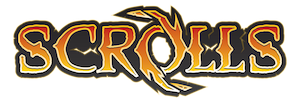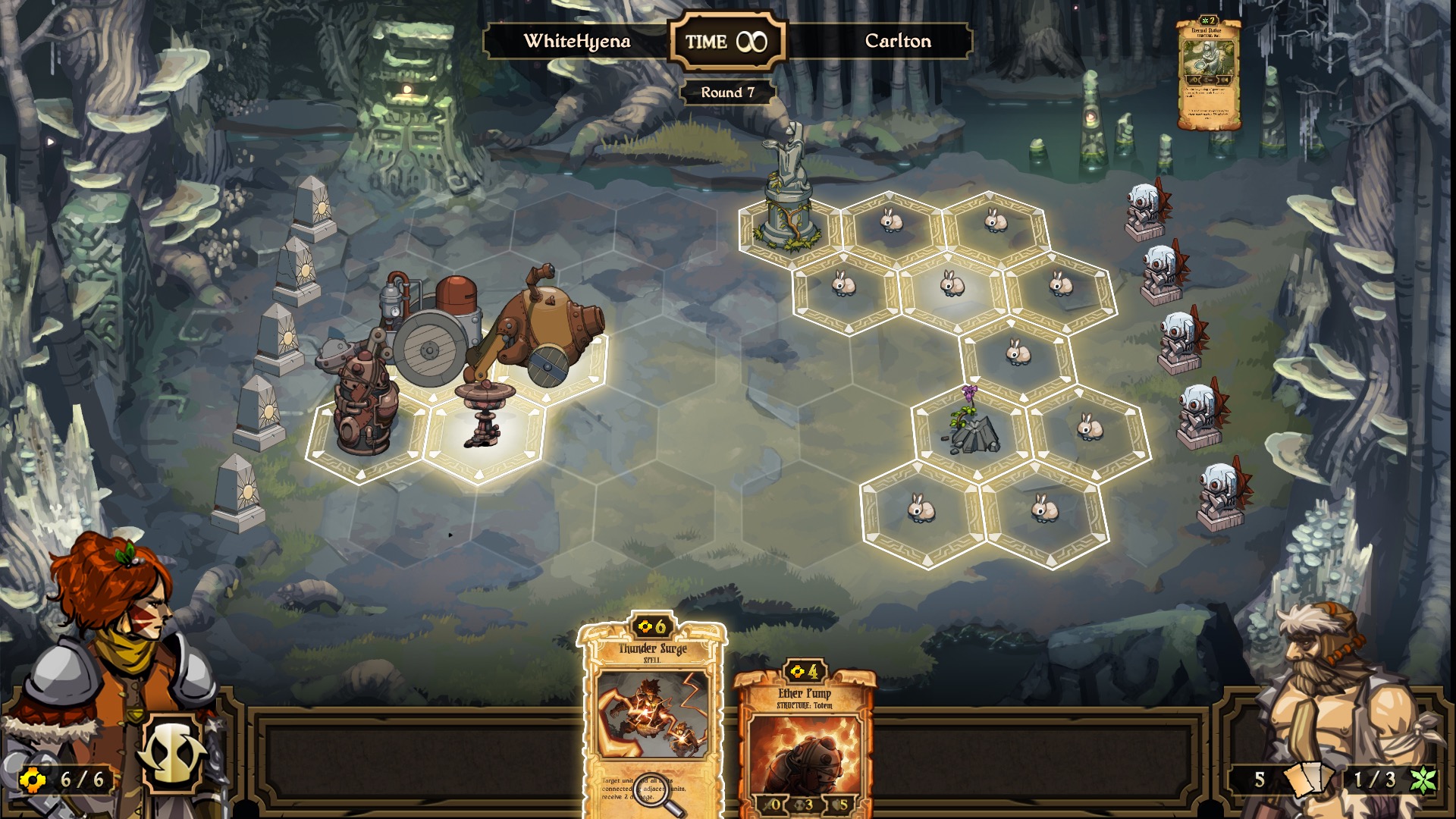 A small team in Mojang’s studio in Stockholm, Sweden has been quietly and unassumingly developing Scrolls, a card-based tactics battler, for over three years, always seemingly overshadowed by something else. First, always and inescapably, by Minecraft ($6.99), a world-conqueringly massive phenomenon that grabs attention like a black hole grabs light. In 2012, the game was the subject of a trademark dispute with Bethesda Softworks, who argued that the title infringed on their Elder Scrolls series. The lawsuit was settled and Scrolls moved into open beta last year, without much fanfare. Microsoft’s recent announcement that it plans to acquire Mojang for $2.5 billion once again dominates any discussion about the studio or its games.
A small team in Mojang’s studio in Stockholm, Sweden has been quietly and unassumingly developing Scrolls, a card-based tactics battler, for over three years, always seemingly overshadowed by something else. First, always and inescapably, by Minecraft ($6.99), a world-conqueringly massive phenomenon that grabs attention like a black hole grabs light. In 2012, the game was the subject of a trademark dispute with Bethesda Softworks, who argued that the title infringed on their Elder Scrolls series. The lawsuit was settled and Scrolls moved into open beta last year, without much fanfare. Microsoft’s recent announcement that it plans to acquire Mojang for $2.5 billion once again dominates any discussion about the studio or its games.
That should hopefully change soon. According to Owen Hill, Mojang’s self-styled Chief Word Officer, Scrolls will be fully released next month. “The guesstimate is late November,” he says, “but we’re not going to release it until it’s ready, if you know what I mean.”
Scrolls is a collectible card game at heart: you’ll create decks of combat units, spells, and support structures and use them against other players online. Balancing your deck’s long-term strategy with turn-by-turn decision-making is the backbone of any card game, but Scrolls adds a second tactical layer: the game board has been replaced by a hex-lined battlefield, where your scheming goblins, fell wolves, and armored knights will plop into existence. Clever positioning and troop movement will be key as you attack your opponent and defend your own resources.
The plan is to release a “final" version of Scrolls on PC, Mac, and iOS and Android tablets at the same time, though Mojang aren’t “aiming for phones with the first version,” says Henrik Pettersson, a producer and artist for the game.
On iOS, Scrolls will take shape as a free-to-download app that will let you play a few rounds as a “dummy” user, with a $5 in-app purchase that unlocks the full-fat version of the game. If you’ve already signed up for the desktop version, Scrolls’ cross-platform features—which include accounts, rankings, and multiplayer—will allow you to load the full game on your iPad right away.
“‘Final release’ just means we’re taking it out of beta, but we want to continue development after that.” Pettersson explains. That means more cards, more units, and more features. The most recent update, for example, introduced 56 new Scrolls, new spells and mechanics, and a new market for players to trade and sell items.
What’s less clear is when Microsoft will finish acquiring Mojang, though the team didn’t seem particularly concerned about it when I spoke to them last week. They’ve been in talks with Microsoft, but there’s nothing conclusive yet: “We’re gonna release [Scrolls], and whether that’s under Microsoft or not, I don’t know,” says Petterrsson.
Microsoft is “super enthusiastic” about the game, and “Scrolls development is continuing as usual,” Hill says. “We will be owned by Microsoft at some point, but that doesn’t necessarily mean they’re going to instantly poke in and go, ‘You need to change the way this is monetized.'"
“From everything we’ve heard and discussed, it is going to be business as usual for a good amount of time.”
Recently, however, “business as usual” has meant trying to release a game after three years of production. “We’ve been so busy with our launch of Scrolls and scrambling to get everything ready, we’re just happy to hear that Microsoft won’t be changing anything in the short term,” Pettersson says. “We can just keep running.”
“We have been making our games and doing that fairly successfully for a while now,” says Måns Olson, Scrolls‘ lead designer. “Hopefully, Microsoft likes that and that’s what they’re after. Calling Mojang “fairly successful” is almost hilariously understated, but the idea has merit: “They’re buying Mojang to keep Mojang working as it has been,” offers Pettersson.
“There’s a good chance that the only effect is that we’ll have to add a Microsoft logo to the launcher or something.”

